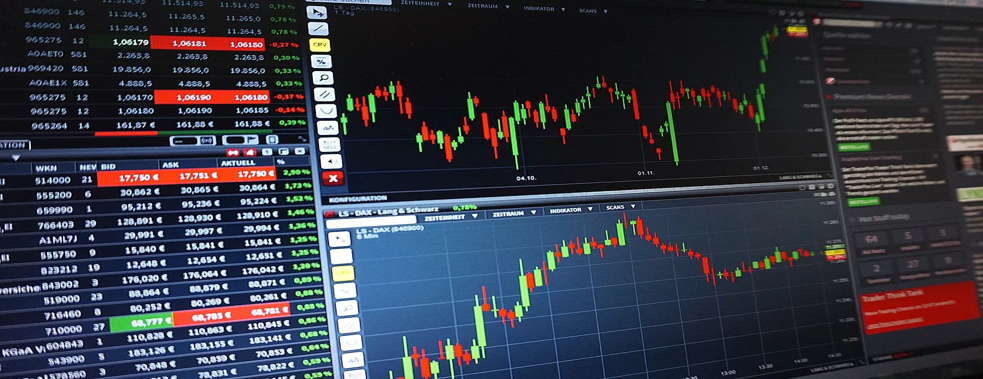If you are finally in a position to make your money work for you, you may be wondering what investment options are the best to deliver the returns you need to achieve your life and financial goals. Investing money in forex and stocks should deliver greater returns in the long term compared to standard saving accounts, but is that the right path for you?
Where to start?
Selecting the right investments does not have to be an arduous process, but you do need to define your own needs and goals and consider how long you want to and can invest for. Do you want to choose an option that will deliver steady but unspectacular returns over a fixed period or opt for potentially lucrative stocks and forex that require more day-by-day management?
Remember, you don’t have to limit yourself to one investment. In fact, the most compelling investment portfolios are built on a mix of options that can work in tandem to maximise your returns over time. The act of divvying up funds is known as asset allocation and, again, how you go about it will depend on the amount you want to earn and the risks you are willing to take with your investments.
Draw up a plan
Creating a documented investment plan is recommended, and you should aim to set out the investment goals and the kind of returns you are expecting to make, in addition to how much control you wish to have over your portfolio and how often you want to check in on its performance.
When you know the level of investment return required to hit a goal, you can start selecting investment types. If you have a more ambitious end target, forex trading and stocks may be the best path forward. You will also need to take into account something called ‘risk capacity’. The higher this capacity, the more high-risk options you can pursue without fear of your investments failing. You should also factor in your own personal risk tolerance.
If you want to start saving for retirement and have a time frame of 10 years or more for your investment, your risk appetite will be greater than someone who is merely looking to save a small sum for a flat. You should also be aware that investments come with additional fees and charges, such as admin fees and trading costs, which can increase over time.
Now that you have a plan of action, you can start looking at potential investments, which include the aforementioned forex trading and stock markets, and options including low risk certificate of deposit (CD), cryptocurrencies, commodities, mutual funds, bonds, crowdfunding and robo advisors, among others.
Forex trading
The foreign exchange market is an excellent option for an active investor as there are a large volume of trades made every second and markets run 24 hours a day. You will be looking to take advantage of the small fluctuations in value in currencies. Forex major pairs such as EUR/USD have low spreads and thus lower transaction costs compared to other options such as stocks.
Forex trading suits a variety of trading styles and has a low barrier of entry due to the vast choice of short-term and long-term trades available. Its high leverage ratio compared to other markets also makes it easier to build a portfolio with small amounts of upfront capital. If you want forex trading explained completely, there are a variety of resources, tools and software to help you get your investment up and running.
Recommendations
Financial expert Justin Modray believes those making their first foray into investment with £50 a month should start with a single investment fund before diversifying and switching contributions to a second fund later on. For those with larger sums, he recommends getting together a basket of funds that covers several types of assets.
He notes: “At the very least, I’d suggest exposure to UK and overseas stock markets, fixed interest and commercial property.” An equity income fund is also a possible option as it provides exposure to stocks while being less risky. For those with lump sums of £10,000 or more, high-quality funds and ETFs can be added alongside stocks and forex.
Diversify and monitor
Accessing more risk is a basic rule of investing if you want greater returns, so always be on the lookout for new investment types and sectors. It is also important to review your investments periodically, but try not to make too many moves in more active investments as markets rise and fall regularly. Finally, be judicious in your decision making and always keep your long-term goals in mind.




